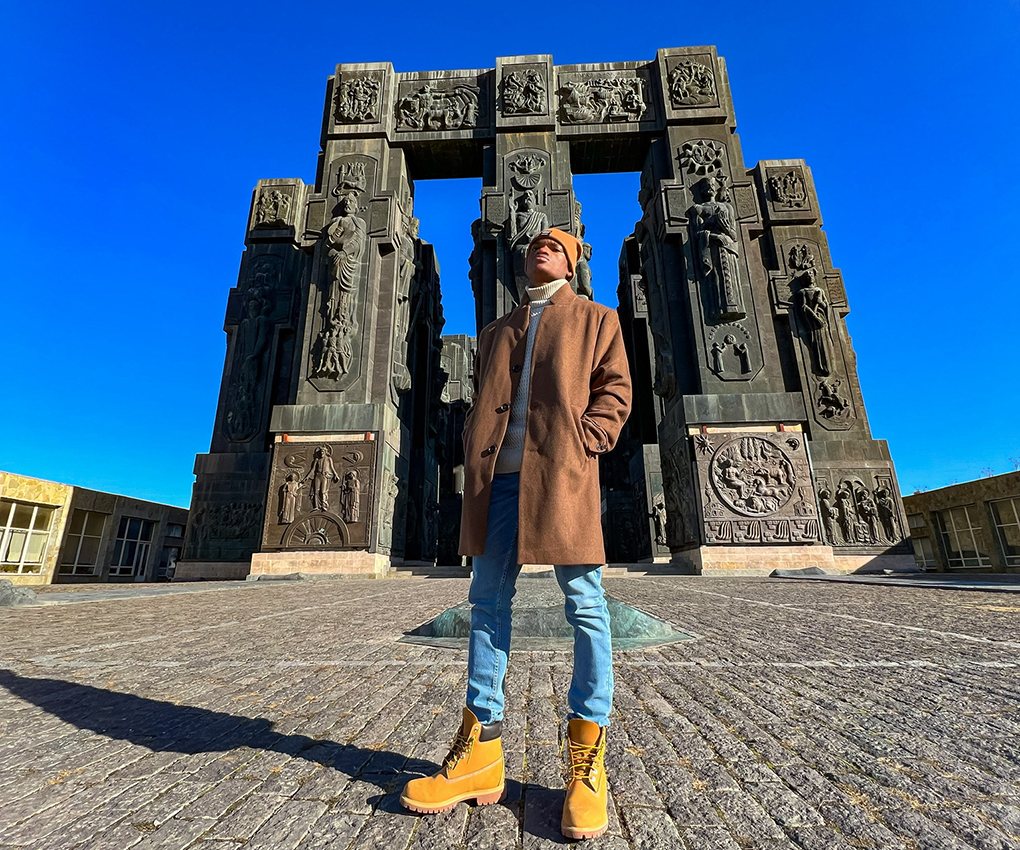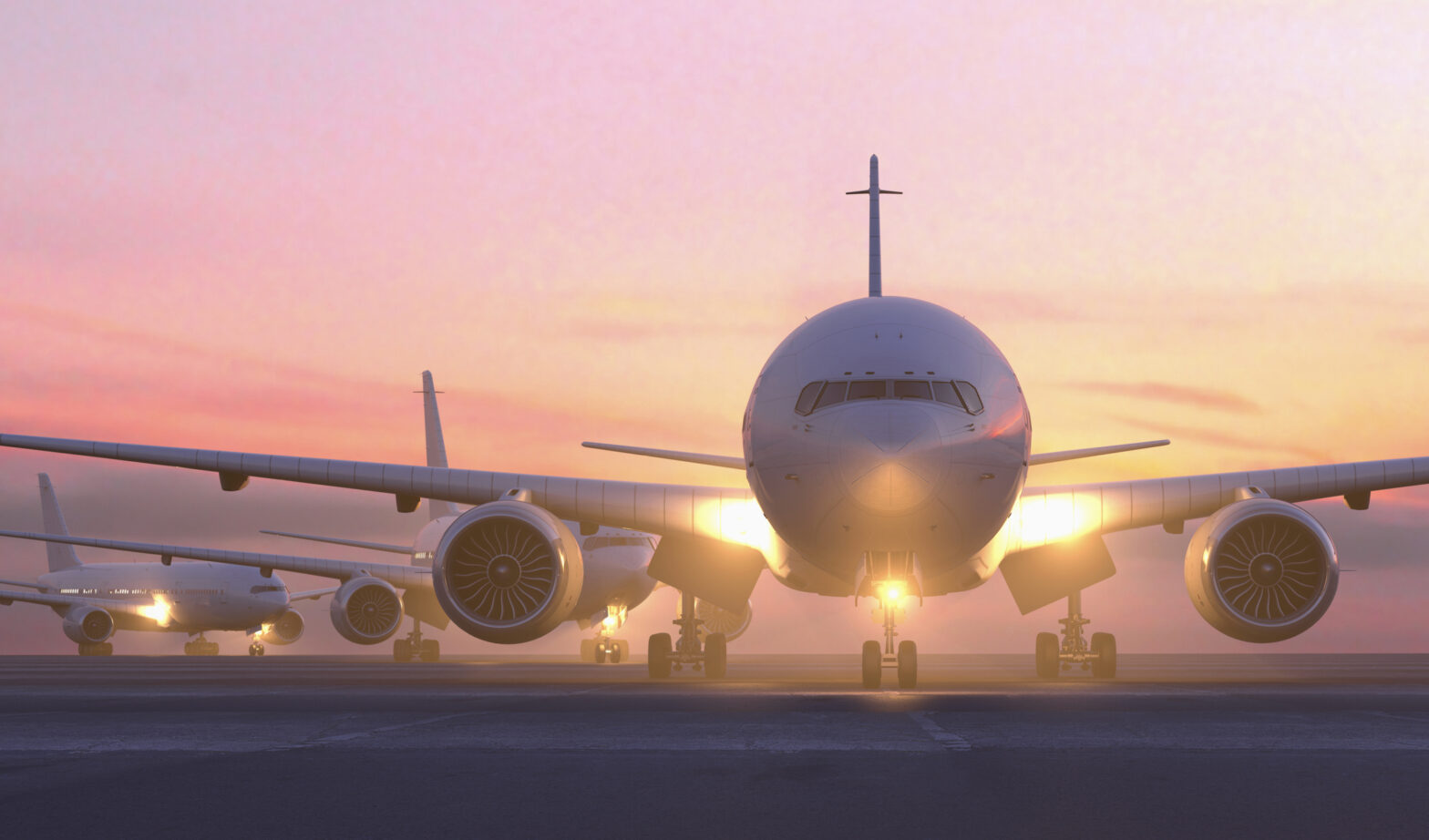World traveler Abdulrahman Suleiman is always looking to explore new and interesting places. In December, he spent one and a half weeks in Georgia, also bringing in the new year in the Eurasian country. A 25-year-old entrepreneur and full-time student originally from Jalingo, Nigeria, Abdul is currently based in the UAE.
Though not historically a common vacation spot, in recent years Georgia has been emerging as an up-and-coming tourism destination because of its affordability and uniqueness. Living in the UAE, Abdul has encountered many people who have visited Georgia due to its geographic proximity to the nation, and who have spoken highly of their experiences there.
“I was not disappointed,” said Abdul. “In fact, Georgia turned out to be even better than I expected. I honestly enjoyed everything throughout the journey. One of the things that impressed me the most is how different the various cities are. Each city offers a distinct experience.”
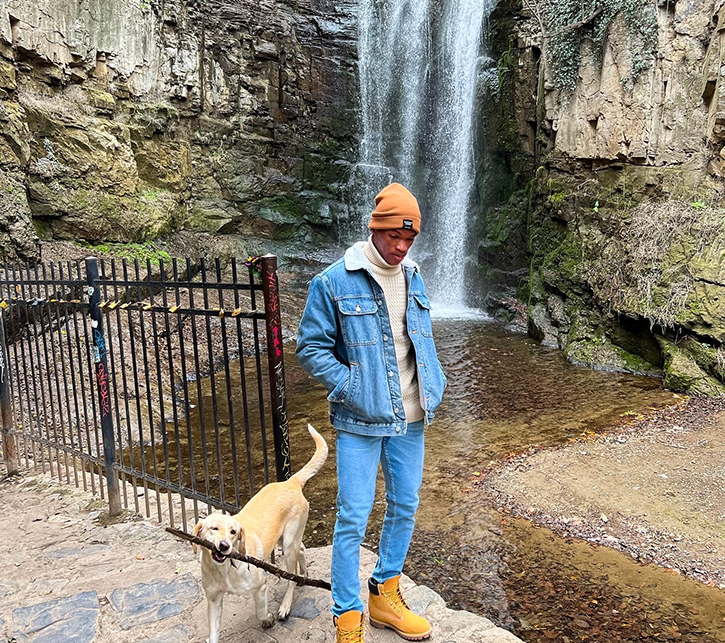
Tbilisi was Abdul’s first stop in the country. The capital city of Georgia offered ancient churches, monuments, and buildings featuring amazing architecture all set against a dramatic hillside. Some of the things he enjoyed the most in Tbilisi were strolling through the Old Town and trying a sulfur bath.
“It was one of the most pleasant and memorable experiences I had in Tbilisi. Sulfur baths have come from the earth for many centuries there. The city is built on hot water. Even the name of the city comes from this.”
“The legend states that in medieval times, King Vakhtang went hunting with his falcon (or hawk in some versions of the story) in a heavily wooded region in Central Georgia. The falcon caught a pheasant and during the struggle, both birds fell into the hot spring and died from their injuries. The king was so impressed with the hot water that he decided to clear the forest and build a city around this natural wonder.”
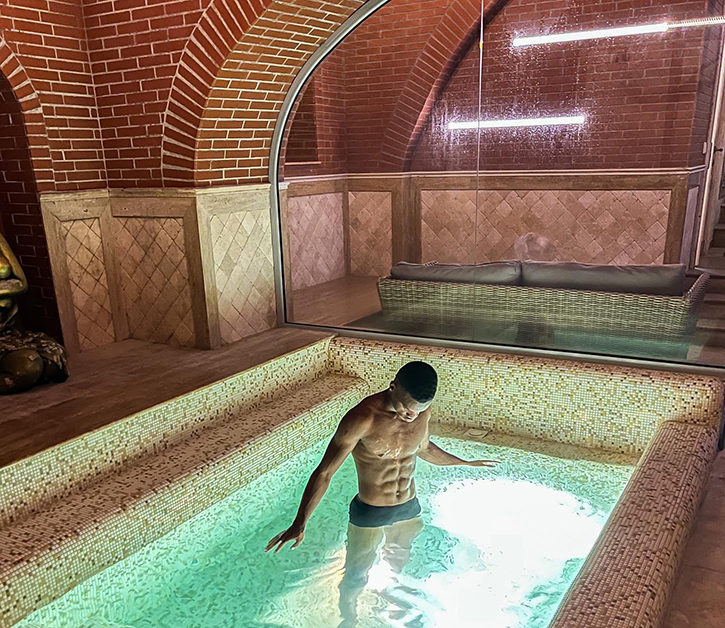
No trip to Tbilisi would be complete without a visit to the Chronicle of Georgia. A true work of art, the monument was designed by the well-known local artist Zurab Tsereteli to commemorate 3,000 years of Georgian sovereignty and 2,000 years of Christianity in Georgia.
“It consists of 16 large columns that reach a height of around 114 feet each. The lower parts portray the life of Jesus and other notable figures throughout the history of Christianity. The higher parts of the pillars depict notable members of royalty and rulers of Georgia.”
With so many incredible things to do in Tbilisi, one could spend their entire Georgian vacation in the capital city, however Abdul decided to move on, next exploring the resort city of Batumi. Situated on the coastline, it is Georgia’s second-largest city and unlike any other city in Georgia. Here Abdul visited the Black Sea and spent time relaxing and recuperating at a beautiful cottage.
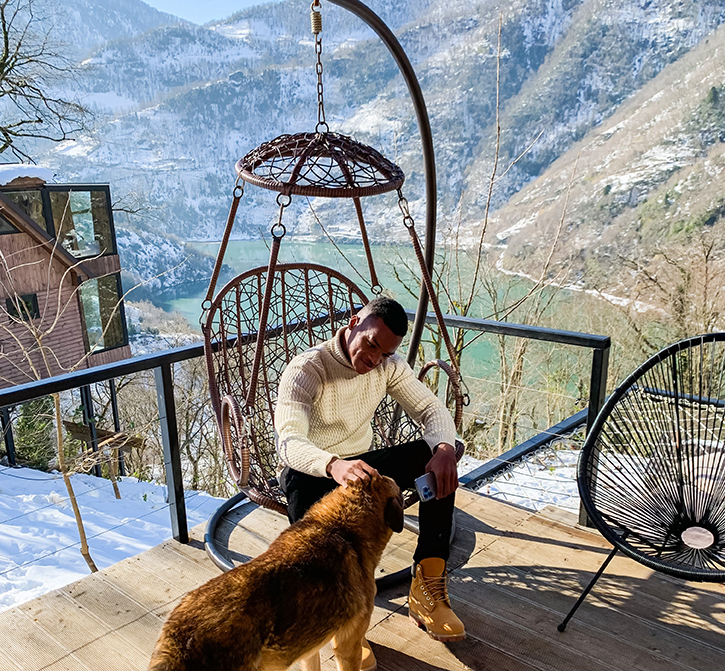
“Batumi’s weather is my favorite of all. Because it is located at the foot of the Caucasus, it has a subtropical climate, which ensures that the winters aren’t too cold and the summers aren’t too hot. It was this fact that attracted the elite of the Imperial Russian Empire to Batumi and that its reputation as a summer holiday resort grew from there.”
Abdul enjoyed an exhilarating hike through the mountainous region of Kazbegito. Here he visited one of the most popular tourist attractions in the country, the Gergeti Trinity Church, a 14th Century cross-cupola church located on the banks of the River Chkheri.
Next, Abdul ventured to Gudauri, which he nicknamed the “snow city.” Located about two hours from Tbilisi, he found the Gudauri Ski Resort a great place to enjoy the Georgia ski season. With affordable prices and a stunning snow-covered mountain landscape, it is the perfect place for enjoying snow activities in Georgia.
“It was love at first sight! It was my first time being in a snowy place, so you can imagine how excited I was to try all the fun activities I usually only see on TV. I enjoyed skiing so much that I spent hours practicing on the slopes. Turns out it is more difficult than I thought. But the most amazing experience I had was paragliding. It was so mind-blowing to see nature from the top. I realized what a great artist God is and how intricately He sculpted nature!”
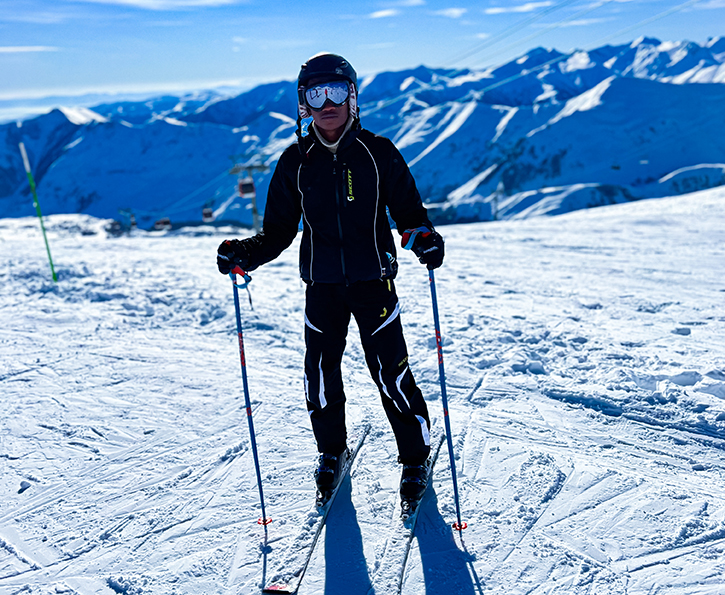
When it was time to welcome 2022, Abdul did not seek out a nightclub or party scene. Instead, he celebrated the new year with a Georgian family in their home. Together, they prepared a traditional Georgian meal and spent quality time.
“We discussed Georgian culture and how it is similar in some ways to my culture. I felt very welcomed by the Georgian people and was so impressed by their hospitality. It is common for complete strangers to invite you for a meal. People who were born and raised in the town you are currently visiting will offer to show you around because they are proud of their country and want to show you its magnificence.”
Abdul found Georgian food to be very diversified and tasty, with every region of the country having its own distinct style of food preparation. With flavors influenced by the Mediterranean, as well as Turkey and the Middle East, the most common ingredients are walnuts, pomegranate, kidney beans, cheese, honey, coriander, and garlic.
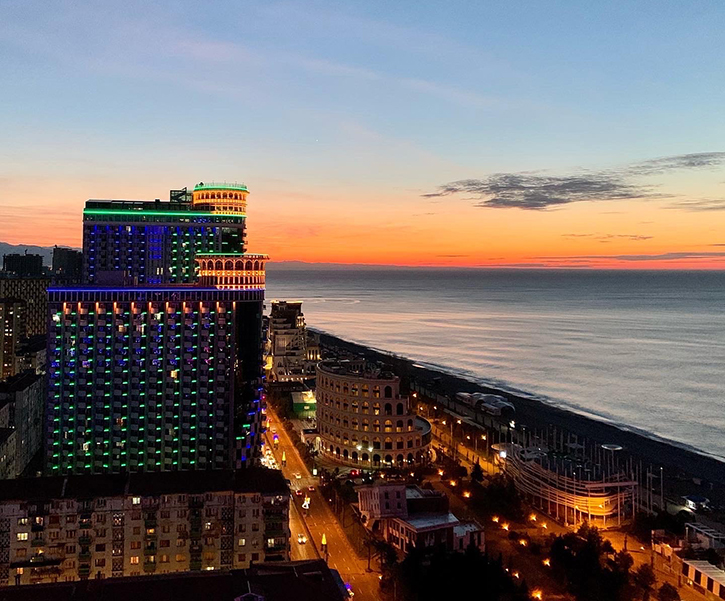
Though impressed with all the foods he tried, Abdul’s favorite dish was shkmeruli, or “garlic chicken,” a crispy chicken cooked in a creamy milk and garlic sauce.
“It’s a basic dish made with very few ingredients, but I am telling you…you will want to try it! Eating and drinking are important parts of Georgian culture. In general, food in Georgia comes with a lot of bread, pastry, and cheese. Georgia is also one of the oldest wine producing regions in the world. In fact, UNESCO added the ancient traditional Georgian winemaking method using the Kvevri clay jars to their Intangible Cultural Heritage List.”
Abdul is looking forward to graduating from school this year and is planning to move to Europe to further his studies. Future travel destinations he is considering include Maldives, Azerbaijan, Kenya, and Senegal. You can follow him on Instagram at @thee_abdoul.
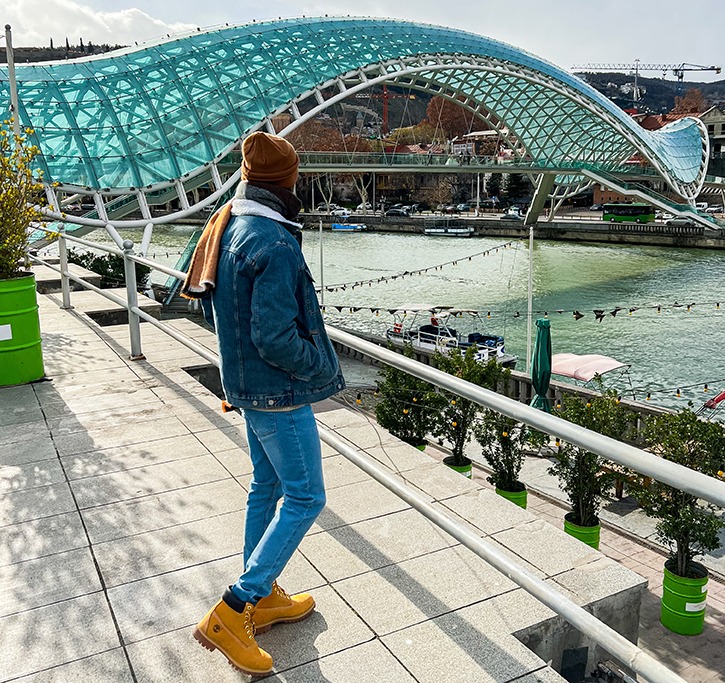
Related: Diary Of A Black Traveler: How Sam Bridged A Cultural Gap In The Balkans
